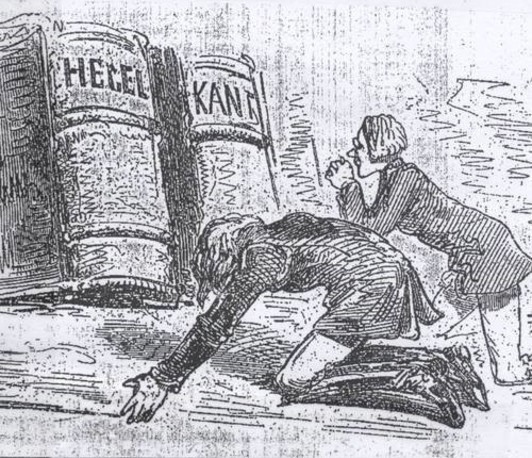Reasonable Punishment?
The Influence of German Idealism on the Theory of Punishment
Workshop
- Start: Oct 26, 2023
- End: Oct 28, 2023
- Location: Freiburg/Germany, Fürstenbergstr. 19
- Room: Seminar room (F 113)
- Host: Max Planck Research Group “Criminal Law Theory” in cooperation with the Chair of Criminal Law and Legal Philosophy at the University of Hamburg and the Chair of Philosophy II at the University of Mannheim
- Contact: strafrechtstheorie@csl.mpg.de

Despite the passage of two centuries, both historians of philosophy and legal scholars continue to grapple with the justifications of criminal law and state punishment put forth by Kant, Fichte, and Hegel. These historical perspectives continue to be of significance as they are often said to unveil core elements concerning the justification of punishment that hold true to this day. However, a fundamental question arises: to what extent are the “paradigmatic attributions” (e.g., Kant and Hegel as representatives of an absolute, Fichte of a relative theory of punishment) justified? Furthermore, the critical potential of these authors for contemporary theories of punishment is disputed. While some scholars directly link their work to Kant, Fichte, or Hegel, striving to assert their continued influence on present-day discourse, others reject a direct invocation of these theorists, pointing to insurmountable, metaphysically demanding presuppositions. This workshop, conducted in German, aims to confront these lingering unresolved concerns by bringing together philosophers and legal scholars working on fundamental questions. The goal is to reexamine the ongoing debate that has persisted in Germany since the late 18th century—namely, whether the justification for punishment should rest on retributive or preventative grounds. Through this evaluation, the workshop will critically explore the potential that these historical authors can have upon contemporary theory of punishment.